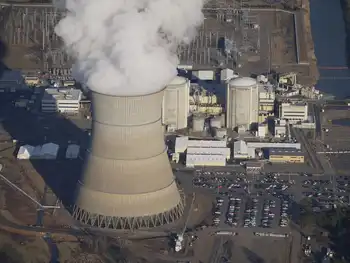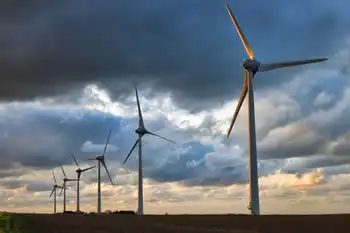JapanÂ’s oldest reactor 40 and counting
In a meeting with Fukui Gov. Issei Nishikawa, Tsuruga Mayor Kazuharu Kawase said, "I have no hesitation in extending its operations if the reactor is safe. The prefecture will also approve (the plan), based on opinions from Tsuruga city and the prefectural assembly," Nishikawa replied.
The local governments' endorsement of the plan will be conveyed to Japan Atomic Power.
The No. 1 reactor at the Tsuruga nuclear power plant, which started commercial operations in 1970, will enter its 41st year of operations on March 14.
By 2015, a total of nine nuclear reactors in Japan, including the Tsuruga No. 1 reactor, are expected to have been in operation for more than 40 years.
Japan Atomic Power initially planned to wind down the Tsuruga No. 1 reactor in 2010 when two new reactors were scheduled to start operations.
But the company was forced to change the plan due to a delay in the start of construction work that followed a revision to guidelines on reactor quake resistance by the central government.
The No. 3 and No. 4 reactors are now expected to go into operation in March 2016 and in March 2017, respectively.
Among nuclear reactor operators, Kansai Electric Power Co. plans to continue operating the No. 1 reactor of its Mihama nuclear power in Fukui Prefecture, which will enter its 40th year of operation in November this year.
Chubu Electric Power Co., meanwhile, plans to decommission the No. 1 and No. 2 reactors of its Hamaoka nuclear power plant in Omaezaki, Shizuoka Prefecture, and build a sixth reactor.
Related News

Hydro One stock has too much political risk to recommend, Industrial Alliance says
TORONTO - A seemingly positive development for Hydro One is overshadowed by ongoing political and regulatory risk, Industrial Alliance Securities analyst Jeremy Rosenfield says.
On October 4, staff from the Washington Utilities and Transportation Commission filed updated testimony in support of the merger of Hydro One and natural gas distributor Avista.
The merger, which was announced in July of 2017 has received the green light from federal and key states, with Washington, Oregon and Idaho being exceptions.
But Rosenfield says even though decisions from Oregon and Idaho are expected by December, there are still too many unknowns about Hydro One to recommend investors…





